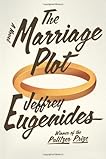 http://www.goodreads.com/book/show/6974785-the-children">The Children by http://www.goodreads.com/author/show/342188.Charlotte_Wood">Charlotte Wood
http://www.goodreads.com/book/show/6974785-the-children">The Children by http://www.goodreads.com/author/show/342188.Charlotte_Wood">Charlotte WoodMy rating: http://www.goodreads.com/review/show/241291991">4 of 5 stars
Last night at my women's group we talked about the impact of being in a tribe - in my case a large and close family. We talked about the sense of security it gives you. There is a layer of confidence that you have in going out to meet the world, beacuse your tribe is strong, you are loved, there are people that will care for you and opportunities for intimacy. It provides a kind of resilient backbone.
The Children is about siblings in a family. It might not be very interesting if it was about a tribe as secure as mine is. This tribe is a little dysfunctional - brought together after an accident and forced to spend unaccustomed time togther. As well as the depiction of these relationships, the novel presents a very fine and accurate picture of life in a NSW country town. It thrusts life in this small town up against the experiences of one of the main characters, Mandy, who has become a foreign correspondent and lived through some extremely traumatic events. Small towns can produce their own forms of trauma hoever, and these play out subtly in the novel. There is one faintly jarring plot line that runs through the novel unnecessarily but the rest of it was just fine and a pleasure to read.
http://www.goodreads.com/review/list/5403283-jillwilson">View all my reviews

